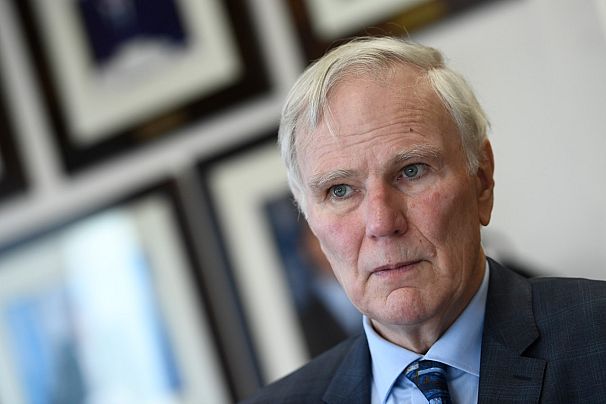"The international community’s abysmal record on tackling poverty, inequality and disregard for human life far precede this pandemic,” warned Philip Alston in a new report to the UN.
Countries are completely “off-track” to meet their goal to end extreme poverty by 2030, according to a new report to the United Nations.
Indeed, contrary to "mainstream wisdom", global poverty is on the rise and is being worsened by the coronavirus pandemic, warned Philip Alston, the former UN Special Rapporteur on poverty and human rights, in a report released on Sunday.
The report has been presented to the UN Human Rights Council.
"Even before COVID-19, we squandered a decade in the fight against poverty, with misplaced triumphalism blocking the very reforms that could have prevented the worst impacts of the pandemic,” said Alston, who served as the UN's poverty expert from 2014-2020.
In his final report, he warned the outbreak is projected to push hundreds of millions into unemployment and poverty, while increasing the number at risk of acute hunger by more than 250 million.
But he said "the international community’s abysmal record on tackling poverty, inequality and disregard for human life far precede this pandemic."
The Bank's line
“Over the past decade, the UN, world leaders and pundits have promoted a self-congratulatory message of impending victory over poverty.
"But almost all of these accounts rely on the World Bank’s international poverty line, which is utterly unfit for the purpose of tracking such progress,” said Alston.
The World Bank's international poverty line defines those living in extreme poverty if they live below $1.90 (€1.68) per person per day.
The report said the Bank’s line shows the number of people in extreme poverty fell from 1.9 billion in 1990 to 736 million in 2015.
But he said the line is "scandalously unambitious" because the best evidence shows it does not even cover the cost of food or housing in many countries.
He also said that poverty among women and those often excluded from surveys, such as migrant workers and refugees, is also obscured by the line.
Eradicating poverty
In 2015 UN Member States adopted a universal call to action called Sustainable Development Goals (SDGs) as well as a 2030 Agenda for Sustainable Development, which include eradicating global poverty by 2030, as well as protecting the planet.
Alston said the framework showed "the UN and its member states are sleepwalking towards failure.
"Five years after their adoption, it is time to acknowledge that the SDGs are simply not going to be met.”
He said that the energy surrounding the SDG process has gone into "generating colourful posters and bland reports that describe the glass as one-fifth full rather than four-fifths empty."
"COVID-19 and the accompanying economic debacle should provide an impetus to revisit the framework of the 2030 Agenda.”












